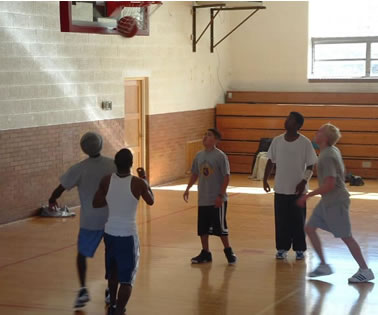Articles
Causes & Effects of Violence in Troubled Teens-C.A.R.E.
By Curtis Reed
 Violence plays a major roll in the death of troubled teenagers. The leading cause of death in troubled teens is accidents, most of which are car accidents; many of these involve the use of drugs and alcohol. Homicide is another major cause of death for kids aged 10-14. Suicide is a major cause of deaths from troubled teens aged 15-19. C.A.R.E. can help you find the out of home placement for your struggling teen.
Violence plays a major roll in the death of troubled teenagers. The leading cause of death in troubled teens is accidents, most of which are car accidents; many of these involve the use of drugs and alcohol. Homicide is another major cause of death for kids aged 10-14. Suicide is a major cause of deaths from troubled teens aged 15-19. C.A.R.E. can help you find the out of home placement for your struggling teen.
A recent survey shows the first conclusive proof that there is a cause-and-effect connection between teens exposed to violence and their own violent tendencies.
Factors like sex, race, family status, and economic position can cause trouble in troubled teens. Researchers attempted to force some teenagers towards violence. While all of these factors contributed to out of control behavior, researchers found that kids exposed to gun violence were two times more likely to become perpetrators of disturbances.
Violence can be in many forms like verbal harassment, verbal terrorization, blocking one’s access to escape, and the physical like hitting, choking, biting, sexual abuse, use of a weapon, murder, and suicide. It may engage teens as victims or perpetrators as well as their families, school officials, strangers, or others. Homeless teens are more involved, particularly those from minority backgrounds.
Clinicians and researchers normally say that violence in humans is the result of some factors like introduction to violence in the home and exposure to media violence. Many teenagers are embarrassed easily and are liable to involvement in fights. This can cause considerable harm to themselves and others.
Violent behavior may reproduce a need in some teenagers to experiment and try new things. The result may be high-risk behavior, such as drug experimentation, fast or dangerous driving, and/or criminal behavior. Additionally, if the teenager has observed instances in their home, school or work environment, they are more likely to commit it.
Here are some steps to helping prevent out of control behavior in your troubled teens life:
Make your home a safe place: There should be no guns in the home. If you feel that guns are necessary, then remove their locks and keep them unloaded and unlocked. Guns and ammunition should be kept separate and safely hidden. Study your home and look for other ways to keep it safe.
Decrease the level of violence in the home: Teens learn patterns of violence from the home and then repeat these patterns throughout their lives. If there are members of a family who cannot or will not stop violence, help them. Do not bear any bullying behavior you see in your kids. Teach them that they must show respect to others and allow them to observe you.
Help your teen to avoid drug abuse: Teach your kids that the use of drugs is an element of the violence in our society. When kids are using drugs, they place themselves in such situations where violence is more likely to take place. If drug abuse is increasing, family members should be concerned and should consider a therapy program that can assess the drug use and offer effective healing.
Limit exposure to violence in the media: Kids learn from media violence that this behavior is right. They may be influenced into believing that a more powerful person can and should control others, and that out of control behavior is an appropriate response to life’s problems. Teach your kids to have a specific purpose when turning on the TV. Watch television shows or movies with your kids as long as they let you, so that you can see what they are watching and can counteract the false and negative instructions they may be receiving.
Reduce violence in the workplace: Consider whether your youth’s work places are a safe environment for them. For example, if they work alone at certain jobs they may be subject to assault, robbery and even murder. Parents do have a right to know and should find out about their junior’s work conditions.